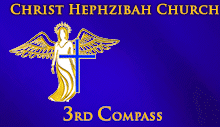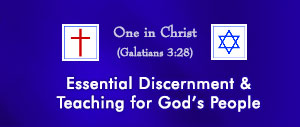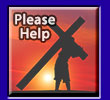Updated 4/3/2024
Added comments about the God Bless the USA Bible
There is a confusing array of Bibles in use today. Some of them are good translations of scripture from the original languages for the most part, but many others were not very reliably translated. In fact, some Bibles contradict scripture and should be avoided altogether. This article focuses on identifying "problem" Bibles and directing you to ones that more closely align with the God's intended meaning of in His word.
Selecting Good Bibles
A good way to categorize different kinds of Bibles is by Sect. Where a Sect of the Bible is an edition from a particular sect of Christianity, Judaism, or other religion. Examples include the Holy Bible (nondenominational) and Catholic Bible, the Hebrew Bible or Torah and Tanakh (Jewish Bibles are basically the Old Testament), the New World Translation (the Jehovah's Witness Bible), the Mormon Bible (the version used by the Church of Jesus Christ of Latter Day Saints), and the Qur'an or Koran (the Bible for Islam and Muslims).
We can use the main category of Sect to quickly narrow our selection of Bibles so that we have scripture that was evaluated to be authentic (see Errors of Truth for more). This authenticated scripture consists of the 66 books of the Old and New Testaments considered as the rule and standard by the early Christian church.
However, Bibles that contradict, add to, change, or omit parts of this standard of authenticated scripture must be avoided. Scripture that should not be used include the New World Translation, Mormon Bible, Qur'an or Koran, and Mishnah and Talmud and other Halacha or Halachic Jewish texts, because they contain modified and/or added scripture that contradicts or corrupts God's original words.
Bibles that contain the correct foundation of valid scripture are largely those of the Protestant Reformation, like the New American Standard Bible (NASB), New International Version (NIV), and King James Version (KJV).
Many Catholic Bibles also contain the correct foundation. However, the Apocrypha, which is included in many Catholic Bibles, is not
considered authenticated scripture by the standards of the early church, nor do I consider them scripture,
so I would read those texts with caution. I have found many writings that are
popular in today's church to be influenced by false teachings and the enemy.
The same goes for Jewish books and teachings that augment scripture. The Lord labeled Jewish teachers and synagogues, even in the time of Yeshua (Jesus) and the first apostles, as corrupted by Satan (John 8:42-44; Revelation 2:9, 3:9), so any teachings coming out of Jewish books, like the Talmud, Kiddushin, Mishnah, Haggadah, and Gemara (collectively called Halacha), I treat like the Apocrypha and other spiritual books. They may have some truth and good teaching or historical record in them, but they are also corrupted by false beliefs and false teachings, so treat them accordingly.
In my review of Jewish Bibles, I have not found any to be better than what the church has produced, and some, like The Israel Bible and JPS Tanakh, have more bad translation and misconstruing of the original Hebrew than some bad Christian Bibles. I cannot recommend any Jewish Bibles, but only use them to see what those in Judaism think God said or how they intentionally mistranslate to fit what they believe (I found many verses in the English translation of The Israel Bible that are completely unrepresentative of what the Hebrew says).
The Importance of Using More Than One Bible
What I treat as most authoritative are Bibles composed of the authenticated scripture that includes the 39 books of the Old Testament (what Jews call the Tanach/Tanakh containing the Torah, Prophets, and Writings or Psalms) and the 27 books of the New Testament, AND, for the most part, have good translation and interpretation. I say, "For the most part," because there are no perfect Bibles - Bibles that have perfect, 100% no errors in translation or interpretation of the original words of scripture. This is very important to understand if you want to understand what God truly meant in His words.
There are many good English Bibles, like the NASB, NIV, and KJV, but fully evaluating the large number Bibles is beyond the scope of this article. What I most want to convey here is, for proper study, we must use at least two or three good translations, because I have found errors of translation in all Bibles I've read. In my time of Biblical study, I have not found any single translation to be completely reliable by itself. I even noticed the NIV has changed a lot since I started study and they have made some interpretations less desirable in the latest editions, so I prefer the 1984 edition of the NIV.
Some Bibles also use overly "liberal" interpretation to bolster certain church doctrine or a sect's particular beliefs, such as Jewish Bibles I mentioned. This is obviously not true and faithful translation and is difficult for the layman to identify, so this is another good reason to use more than one Bible for study. You can see problems with translation when different Bibles differ greatly in their interpretations.
To start, you should choose a good modern English Bible, like the NIV or NASB, for your daily Bible reading, because they are the easiest to read and understand. I often use both of those translations, though after decades of study, I prefer to start with the NASB, which more accurately preserves the wording used in the original language manuscripts. Your modern Bible should then be supplemented with the 400 year old KJV, which has been a standard for centuries and is the only English translation I know of that is exactly as God wanted it, even though it contains errors of translation. It is considered by experts to be a very accurate translation of authenticated scripture.
The main problem with the KJV is that it uses archaic Old English, which can be very confusing to read and understand, and the wording it uses can be outdated and very misleading because the meanings of many English words have changed a lot since the KJV was written. However, its faithfulness to scripture from the original Biblical languages is often used as a double-check for modern Bibles. I use it as an additional reference, not as the final word on correct translation, because I've seen many instances where the KJV does not translate God's original words correctly.
Most Bibles Removed God's Names
Another big problem with most Bibles is they do not preserve original scripture's use of God's names. Instead, they replace most instances of them with THE LORD, or in the case of Jewish Bibles, like the CJB and The Israel Bible, they replace God's names with Adonai, the Hebrew word for Lord, or Hashem, the Hebrew word for The Name. Most of God's people have forgotten His many names today because of this, so I make it a point to put back what was in God's original words when I quote scripture. This is why you see me using God's name, Yahovah, in many Old Testament quotes instead of simply the Lord (see The Actual Names of God and Christ for details on why I use Yahovah for God's name instead of other variations of His Hebrew name, יהוה).
Questionable English Bibles
The English Standard Version (ESV), New King James Version (NKJV) and The Voice (Voice). These Bibles have more serious problems with correctly translating God's meaning in His original words or skew its meaning too much. If you use them, they should not be your main reference. I also evaluated the MacArthur NASB Study Bible and found John MacArthur's doctrine to be often incorrect and chauvinistic. However, I recommend the NASB translation as a good English translation. It is MacArthur's teaching and notes in his branded study bibles that need to be held at arm's length and treated appropriately. If you want a study bible read about my recommendation below.
Jewish Bibles, as I said, also have very bad translation and interpretation, so I would be cautious using them and do not recommend them for primary study. Jewish Bibles (Tanakh or Tanach), like from
Israel 365 (
The Israel Bible), a ministry I evaluated to have incorrect teaching, often interpret scripture wrong because of their beliefs from traditional Jewish texts and teaching, which I stated have false teaching. I found many verses in
The Israel Bible's English translation, which they made from the
JPS Tanakh, to be very badly translated. This can definitely mislead readers when Jewish ministries, like Israel 365, often promote special hidden meaning in their Hebrew Bibles that cannot be found anywhere else. It is true God hid special meanings in Hebrew,
some of which God has shown me in His names, but we still need good interpretation that most Jewish ministries are lacking in.
For primary study, I suggest using the NASB, NIV, and KJV, and the NIV Study Bible for more serious study. The NIV Study Bible has the best reference notes of the Study Bibles I've seen, but I must note that the NIV uses more liberal paraphrasing (translation) of the original words in scripture, so I rate the NASB and KJV as more faithful to God's original words.
And as a note for all study and reference Bibles, like the NIV I recommend, their notes, charts, maps, etc. should not be considered the final word on matters either, as they do have errors of interpretation and incorrect analysis that come from incorrect doctrine, carnal thinking, and incomplete data. A good student of God's word needs to be able to discern plain, unskewed truth from the interpretations of man and viewpoints coming from incomplete information.
Also note that I found the MacArthur Study Bible's notes and commentary to be more influenced by false beliefs and false teachings, though there are also good notes and commentary that are of value. It is very hard for even experienced ministers to understand what is bad, because you cannot discern bad from good when you believe in bad or false teachings. The NIV Study Bible, as I said, is more objective and an overall much better reference, so I recommend it over other Study Bibles.
Other Bad Bibles
The Message (MSG), New Living Translation (NLT), and New Life Version (NLV) are popular because they are very easy to read, but they should not be used because they use excessively liberal paraphrasing, which means they reword scripture to try and make it easy to understand.
However, this rewording often misinterprets God's original words. Understanding scripture correctly requires a reliable translation that keeps as much error out of the result as possible, so translations like The Message, New Living Translation, and New Life Version should not be used for serious study. At most, they should be used for young children (pre-teen) because they are easy to read, but if they are used for that the children should be taught the Bibles are not God's actual words and they should be given better Bibles when they've matured.
I don't suggest using any Bibles with questionable translation even for children, but instead read to them and let them study good translations from the start, so their thinking is not too influenced by bad translations or interpretations, which are the foundations of false teaching. The NIV is a good Bible for children and new believers, as its paraphrasing is usually in line with the meaning of the original languages of scripture. However, as with all Bibles that use more paraphrasing than others, like the NIV, readers should be taught that they are not God's actual words, but are translations and can have errors from bad interpretations.
Another bad Bible is the HalleluYah Scriptures (HA) Bible. It is
marketed with much hype about being a much better Bible than other
translations and touts Paleo Hebrew (an ancient form of Hebrew from the
time of and before the first temple in Jerusalem). However, any good
Bible uses all the ancient Hebrew manuscripts that were available at the
time of their writing, so hyping up Paleo Hebrew makes little difference for
translation, and any Bible that has the Hebrew with its translation does not give better translation simply because they show the Hebrew. Nor does having Hebrew available give better insights into God's words if you have little or no knowledge of Hebrew.
Proper interpretation and
translation of the Hebrew are what's important for a good Bible, and
just from one example on the HA site,
"'…And make no mention of the name
of their mighty ones, nor swear by, nor serve them nor bow down to
them.' (Yahoshua [Jos] 23:7)"
(Joshua 23:7), it is
easy to see they don't interpret God's meaning in the original words
well enough. For example, here,
"mighty ones" should be
"gods" (from the
Hebrew elohim), like other good Bibles translate, because that is what God
means - the other gods and not simply "mighty ones," which could be any
mighty person or thing.
The HA does put back God's actual names
into scripture, which is good, but other Bibles do that too, and since I
cannot recommend any those Bibles' quality, I prefer and suggest using good
translations and simply replace LORD, ADONAI, or HASHEM with God's
actual names when they appear. Other Bibles that put back God's name in
scripture also do not use the versions that I was guided to use
(see The Actual Names of God and Christ for more).
An Inappropriate Bible
In March 2024, Donald Trump endorsed the God Bless the USA Bible[1.1], which enraged many people, not just because it appeared to be a political stunt for his Presidential Campaign but also because the God Bless the USA Bible includes the United States Declaration of Independence, U.S. Constitution, U.S. Bill of Rights, U.S. Pledge of Allegiance, and lyrics for country music singer, Lee Greenwald's song, "God Bless The USA" (Greenwald is the person who released the God Bless the USA Bible).
The God Bless the USA Bible uses the KJV translation, which is not bad in itself, but government and allegiance documents for a nation and a popular singer's music should not be bound together with scripture. God's words are meant for all peoples and nations. God did not include most government documents or records in the Bible for ancient Israel, but often stated that those records were in the annals of the kings, and as for music that isn't scriptural, not even King David or King Solomon who wrote large parts of the Bible and included songs, did not include their personal or miscellaneous songs in scripture. Solomon wrote 1005 songs (1 Kings 4:32) but how many are in the Bible?
Critics of the God Bless the USA Bible have also said this overtly United States edition of the KJV supports prejudiced and racist viewpoints that are associated with "Christian Nationalists." These people, in which Trump appears to be associated with based on his previous comments, endorsements, and relationships, are often associated with White Supremacy. They may appear to be faithful believers and pious on the surface, but also often belong to extremist sects of Christianity that obviously skew scripture for the advantage of White Men, violent authority, and misogyny.
These kind of believers are obviously dangerous and kin to the Nazis and other extreme authoritarian regimes. I would not associate with such believers as the New Testament states,
Withdraw yourselves from every person that walks disorderly, such the sexually immoral, the covetous and greedy, idolators, abusive-mouthed slanderers, drunkards, swindlers and extortioners, those who do not live after the tradition received of us, the apostles (1 Corinthians 5:9-12; 2 Thessalonians 3:6). I would not support or purchase anything from their ministries or organizations. Trump's public behavior and life conduct speak for themselves
(for more, see The People's Loss of Discernment).
Closing Comments
If you can only afford one Bible, I would recommend a Reference Bible because the academic notes included with them are invaluable for understanding scripture better (I suggest the NIV Study Bible, as I said). Most people have not studied the historical and cultural context of Biblical times, so the extra meaning in these details can give understanding that helps ward off errors of interpretation.
In addition, to further avoid errors of interpretation, we also need to reference the original language manuscripts and dictionaries, such as Strong's Concordance, because there can be meaning in the original languages that was lost in translation.
Whichever good translations of the Bible you choose, remember that understanding God's word correctly requires wisdom. Keep context in place and view scripture in its entirety. God's word is not meant to be understood with only a few verses or interpreted any number of ways. The meanings God intended in His words are the ones we need to understand. However, it has been assumed this meaning comes automatically and easily, simply from reading scripture. This is NOT true and requires further learning about how to rightly divide or correctly handle God's guidance (2 Timothy 2:15), and how to use God's mind (His Spirit) (1 Corinthians 2:10-16), which is also essential because interpretation belongs to God, not man (2 Peter 1:20-21; Genesis 40:8), and no one can truly understand God's words except by His mind or Spirit, “For who among people knows the thoughts of a person except the spirit of the person that is in him? So also the thoughts of God no one knows, except the Spirit of God” (1 Corinthians 2:11).
Much experience in studying scripture and discerning true and false guidance and good interpretation is needed to treat the word of truth accurately (2 Timothy 2:15). The main point of this article, though, is God's guidance cannot work to your fullest benefit with Bibles that are deficient in some way, so make it a priority to use ones that are recommended above, and avoid the ones that were flagged.
References


